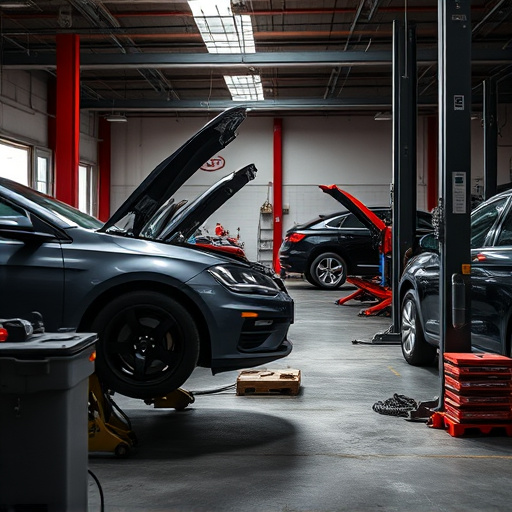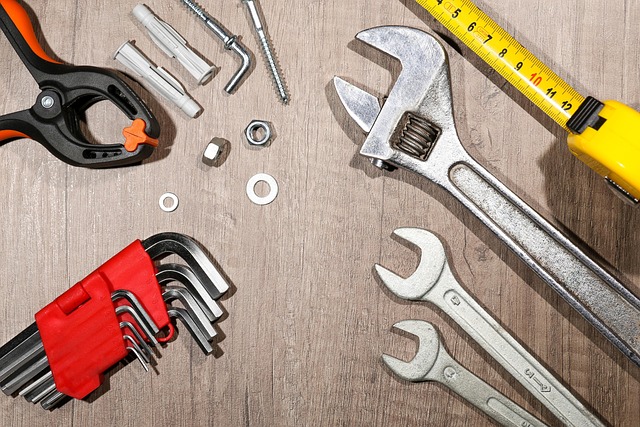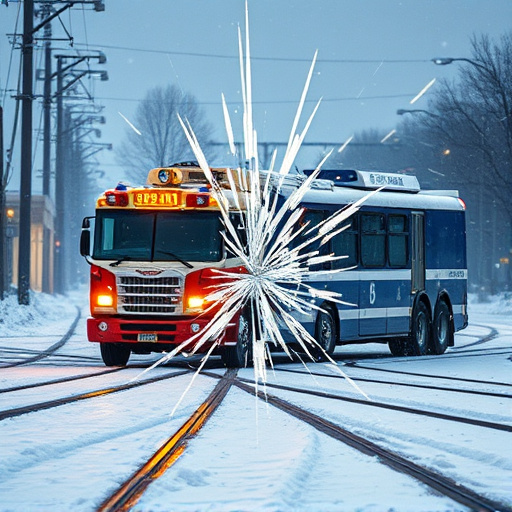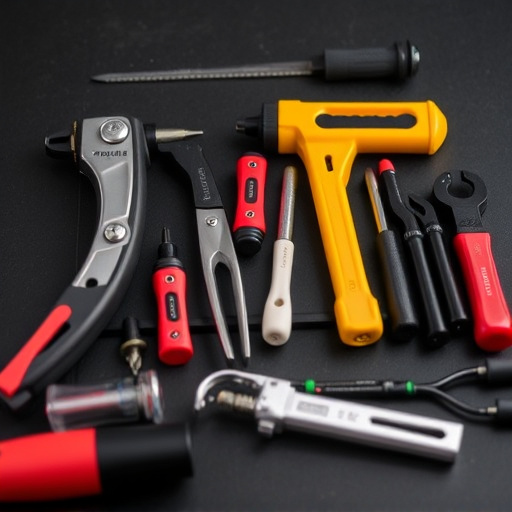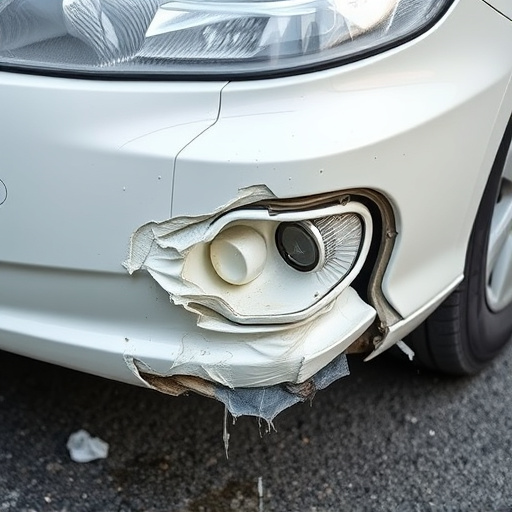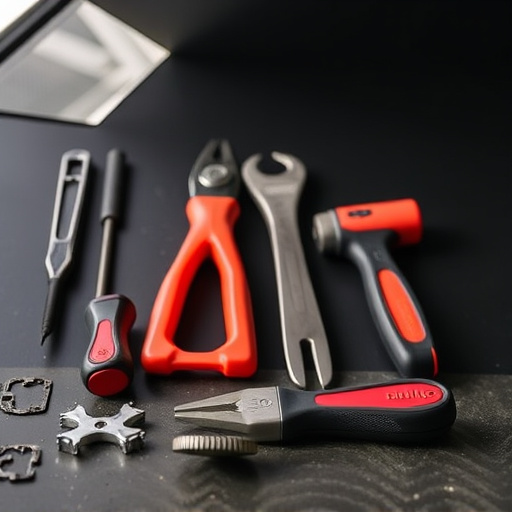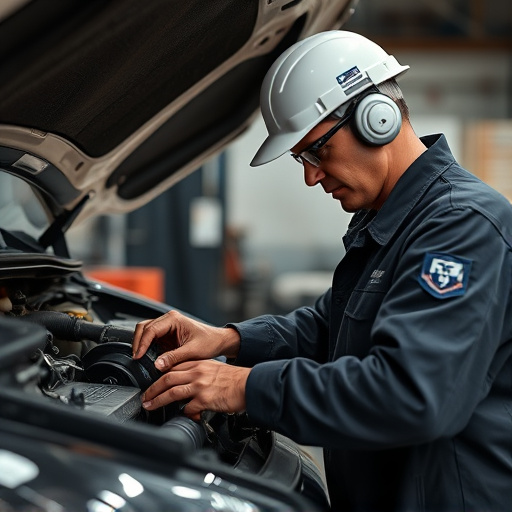DIY car repairs can be tempting, but complex tasks like dent repair or autobody work require professional knowledge to avoid substandard, unsightly, or unsafe results. Automotive professionals' training and tools ensure accurate repairs and improved vehicle performance. While DIYers can enhance their skills with research, courses, and quality materials, intricate jobs may necessitate seeking expert advice from auto collision centers to address repair quality concerns and maintain vehicle condition.
In the realm of home repairs, a common debate arises: DIY or professional? While DIY projects offer cost-effectiveness and satisfaction, understanding repair quality concerns is paramount. This article delves into the intricacies of these concerns in DIY ventures, highlighting the professional advantage. We provide strategies for DIYers to ensure high-quality repairs, empowering individuals to make informed choices and navigate the challenges of home maintenance with confidence. By addressing repair quality concerns, we aim to foster a harmonious balance between DIY passion and professional expertise.
- Understanding Repair Quality Concerns in DIY Projects
- The Professional Advantage: Expertise and Tools
- Strategies to Ensure High-Quality Repairs: DIYer's Guide
Understanding Repair Quality Concerns in DIY Projects

DIY projects can be a rewarding way to enhance your home or car, but when it comes to repairs, especially complex tasks like vehicle dent repair or autobody repairs, understanding repair quality concerns is paramount. While many folks are eager to take on do-it-yourself (DIY) approaches, certain aspects of these repairs require professional knowledge and equipment. For instance, fleet repair services often deal with regular maintenance and quick turnaround times, which may be challenging for amateurs.
The risks associated with DIY repairs include substandard work that could compromise safety or lead to further damage. In the case of vehicle dent repair, improper techniques might leave unsightly marks or even cause structural issues. Repair quality concerns are especially critical in industries where precision and expertise are vital, such as automotive maintenance.
The Professional Advantage: Expertise and Tools

Professionals in the automotive industry possess a wealth of knowledge that DIY enthusiasts often lack. When it comes to repair quality concerns, especially with intricate car restoration or specialized tire services, experts have an edge. They undergo extensive training and stay updated with the latest advancements, ensuring they can diagnose even complex issues accurately. This expertise translates into more precise repairs, leading to superior vehicle performance and longevity.
Moreover, professional body shop services come equipped with state-of-the-art tools that are often beyond the reach of average homeowners. These tools enable them to handle tasks efficiently, from intricate metalwork to precision alignment, resulting in high-quality repairs that match or exceed factory standards. This advantage is particularly notable for complex procedures like body panel repairs, paint jobs, and mechanical fixes, where professional skill and technology make all the difference.
Strategies to Ensure High-Quality Repairs: DIYer's Guide

When it comes to repairing car damage, whether it’s from a fender bender or a more severe auto collision, DIY methods can be tempting for those who enjoy hands-on projects and want to save costs. However, achieving high-quality repairs is not always straightforward for the average do-it-yourselfer. Many DIY enthusiasts might face challenges in matching factory finishes, ensuring structural integrity, or acquiring specialized tools and knowledge required for complex tasks.
To overcome these obstacles and address repair quality concerns, DIYers can employ several strategies. First, invest in high-quality supplies and equipment to ensure the best results. Next, thoroughly research the repair process, seeking guidance from online resources or consulting with professionals at an auto collision center. Additionally, consider taking courses on automotive repair services to enhance your skills. Regularly inspecting and maintaining your vehicle can also help prevent future damage, making repairs less complex. Lastly, don’t hesitate to seek expert advice for intricate tasks; visiting a trusted automotive repair shop can provide valuable insights and ensure the longevity of your vehicle’s condition.
In addressing repair quality concerns, both DIY enthusiasts and professionals have unique strengths. While DIYers bring passion, creativity, and cost-effectiveness, professionals offer specialized knowledge, advanced tools, and guaranteed results. Understanding these dynamics equips individuals to make informed decisions, ensuring their repair projects meet high-quality standards regardless of the chosen path. By implementing best practices and leveraging available resources, whether tackling tasks independently or outsourcing to experts, one can achieve superior repair outcomes.
